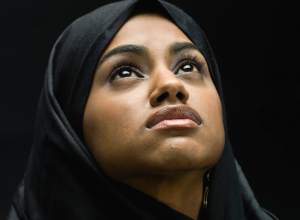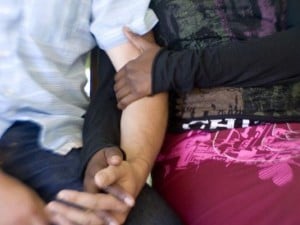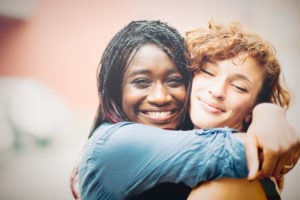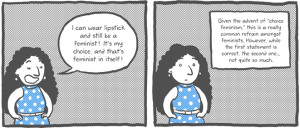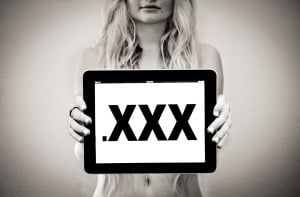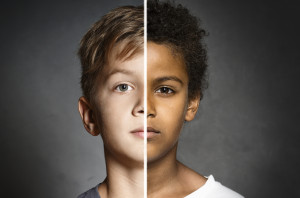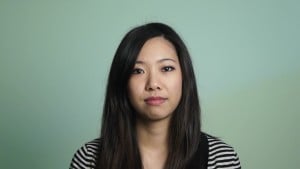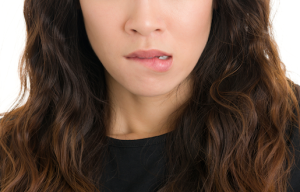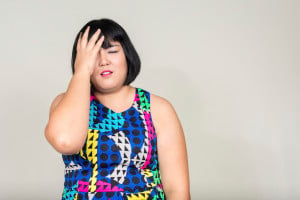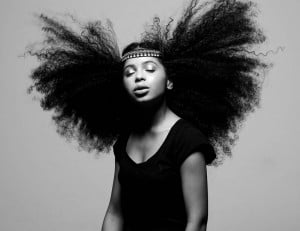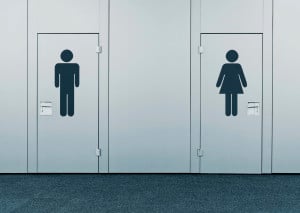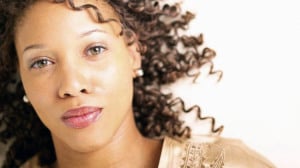Whenever I join any kind of gathering with friends I feel afraid. Don’t get me wrong, I love hanging out with my friends – what I hate is pictures.
A lot of people know someone who hates pictures, but I have a different reason than most: I’m a hijabi, a woman that wears the hijab, and not all of my family knows. And if they did learn, I might be disowned – at least from some parts of the family – as one of my friends has been.
Because of their misconceptions and prejudices, I have to hide this part of who I am from them.
Frustrated. Annoyed. Upset. Hurt. Frightened. Those are all the things I feel in response to people’s reactions to me being Muslim and a hijabi.
So many people talk about social pressure from families to wear hijab. Others say that we are brainwashed to wear them. But they forget that there is also a very large opposing force. How often do you actually see Muslim hijabis interviewed about hijab?
How often are they actually asked their opinions?
Instead people in the media mostly talk about women who wear hijab without anyone who wears hijab there.
This presents a one-sided picture of oppression. I would hope that the folks perpetuating these narratives don’t actually know better – because if they do know better, then I would use not the nicest words to describe them.
I don’t know why people have this idea of hijab as being oppressive. There are more countries where there are laws restricting hijab than there are ones enforcing wearing them. Yes, some people are forced to wear them, but some people are forced to wear shirts. It doesn’t mean the shirt itself is oppressive.
When I wear hijab I’m viewed as a representative of Islam, which is a lot of pressure, and people ask me a lot of ignorant questions like “Do you worship pigs?” No. Just no. That question is ridiculous. Just because you don’t eat something doesn’t mean you worship them. I mean, my grandmother doesn’t eat shrimp, but she definitely doesn’t worship them.
And while many of us Muslims may be happy to teach you about our religion, it may be a good idea to ask us if we are open to answering your questions before asking – or even do the research yourself. It can be incredibly rude, and a form of street harassment, to continually ask a women why she wears hijab on the street.
Being asked ‘why do you wear hijab?’ by a stranger on the street for the 65th time kind of gets annoying. I get stares when I’m out in public. There are occasional whispers that I can’t be sure are about me. Every single little microaggression adds up.
Even if nobody yells at me or does anything big, it becomes a ginormous weight on my chest.
And then there are the bigger aggressions. Like when my father compared women who love wearing niqab to women who love their rapists. Or when he kept offering to get my hair cut in public places. Or the random man who made his fingers into a gun sign, “shot” at me, and then just smiled.
There’s a very, very large social pressure against wearing hijab, at least in the West. And there has been a study where it was found that women who wear hijab are more likely to be victims of hate crimes, because they’re visibly Muslim, like what happened in the Chapel Hill shooting.
Now you might be thinking – but I’m a feminist and an ally. I would never assault a woman for being Muslim or wearing hijab. But, there are a lot of ways that I experience marginalization and exclusion, even in the most anti-oppression oriented spaces.
Below are some of the harmful assumptions people have made about me within my own queer and feminist communities.
1. “You Can’t Be Muslim and Feminist”
Despite the fact that this was an intentional, well-thought out, and empowering act of self-love and self-actualization, people decided to interpret my decision as me giving up feminism.
Nowhere in this process did I ever stop being a feminist. Yet many people have decided that I have.
Especially people like FEMEN, an extreme organization who claims to be devoted to feminism, yet who has decided that I can’t be feminist because I’m Muslim. Members of this group have decided that hijab is oppression, and who, even when hijabis say it’s not, accuse us of lying.
For example, many of the members have acted incredibly Islamophobic on many public occasions by making fun of the term “allahu akbar,“ painting themselves up and wrapping literal towels around their heads, all the while saying they could represent Muslim women better than those women could themselves.
Part of feminism is the right to choose. And when people deny my right to choose hijab, they’re acting against feminism.
Yes, some people are forced in some countries. However, there’s around 1.5 billion Muslims in the world. You can’t saying all of them are forced.
You can’t deny the agency of that many women have.
Moreover, in Islam, women are equal to men. Our good deeds are equal to men’s good deeds. In fact, in Islam, neither money, skin color, ability, sexual orientation, or gender makes you better than another. It’s just how many good deeds you do that matters.
The gender inequality that the media focuses on when discussing Muslim countries often comes from poverty, lack of education, and individual cultural traditions.
While there are some differences between Islam and other religions – I’ll admit, the Qu’ran is actually a very progressive book for its time with regards to women, even compared to the Bible. For instance, if a woman marries, her money is hers alone, and her husband’s money is hers as well. Female infanticide is forbidden in the Qu’ran, which was common beforehand.
And instead of the men getting a dowry, the dowry goes directly from the man to the woman to use however she chooses. She’s also allowed to inherit and divorce – far more rights for women than dictated in the Bible, yet few people say Christians can’t be feminists.
The only difference is that there are far more Christians in the West, whereas Muslims are perceived as “other.”
2. “You’re Brainwashed”
I’m not.
As the multitude of converts can attest to, since we came into the religion from another background, we are proof that a “brainwashing” upbringing is not what makes all, or even most, people wear the hijab.
It’s harmful when people say that I, and other hijabis, are brainwashed because they’re saying we can’t think for ourselves – which is kind of rude, you know?
I am no more brainwashed to wear hijab than you are brainwashed to wear hats.
I’m not going up to random Christian converts and saying, “Oh my gosh, you’re brainwashed!” And the same courtesy should be expected for hijabis.
It is a microaggression because people who believe hijabis are brainwashed often try to argue with us about our decisions and attempt to tell us how to live our lives.
And this usually happens when the person wearing the hijab never even opened, or welcomed, the conversation.
It’s kind of like having an unexpected pop quiz, except all the questions are mean and policing. And it happens all the flipping time.
When you do this, you are not only questioning my ability to choose, you’re questioning my intelligence in a way as well.
I can choose my religion and my clothing for myself.
3. “You Shouldn’t Be So Upset About Microaggressions”
Although microaggressions don’t seem like a lot when they stand by themselves, they really can add up.
When I go to the grocery store, I have to be conscientious of every single stare because I never know what microaggression might escalate to something that threatens my safety – every little look, every double take, every little “Did they start talking about Jesus randomly next to me, or is that just coincidence?” (Side note: We believe in Jesus, too – just differently.)
It all adds up and that total hurts.
And it adds, intensely, to that hurt when you tell me not to get upset.
It’s being told I shouldn’t worry about the stares and glares – stares and glares that I don’t deserve. It’s being told I shouldn’t let them get to me – even though they are intentional attacks done to invade my sense of space and safety. And they are getting to me.
But beyond that, these are my emotions we’re discussing and I know them better than the other person. Others might have had worse experiences with some kind of prejudices, but I’m allowed to feel the way I do about my experiences. It is messed up to belittle the issues that others go through.
All of us have our own struggles and we should help each other through them, not kick each other when we’re down.
It’s harmful form of gaslighting someone else’s emotions. It’s saying our opinion can’t be valid. And that’s not okay.
4. “You Can’t Be a Good Ally to the LGBTQIA+ Community”
Are you kidding?
Being Muslim and hijabi puts me in the perfect place to reach and talk to a lot of people. For example, I have talked to a lot of Muslim youth about feminism and they have consistently been understanding and interested in our discussions. Plus, people in the Muslim community can be a lot more open than many give them credit.
Many of my Muslim friends support gay rights, and I myself am LGBTQIA+. How dare any one try to erase one part of my identity because they are prejudiced against another part?
It’s messed up.
Hijabis experience enough prejudice in the world. When we’re in the LGBTQIA+ or feminist community, we shouldn’t have to experience that same prejudice. Yet we do.
To put this into perspective, when I told my dad, who tried to raise us as strong feminists and succeeded, that I was bisexual, he showed so much more acceptance towards my sexual orientation than towards my faith.
And the LGBTQIA+ community I participated in wasn’t the most accepting either – like when someone I knew asked me, “Are they okay with gay people? If not, don’t be Muslim.”
When I converted, my LGBTQIA+ friends (with the exception of a small few) stopped treating me as one of the group.
They also wanted to out me all of sudden, almost like they wanted me to get forced out of the Muslim community. That made me stop wanting to be around them; it made me feel unsafe and hurt.
These were people that I’d considered to be my friends. I stopped seeing any of the LGBTQIA+ group because they made me feel like an outcast.
For the record, I have come out to some of my Muslim friends about my sexuality and they were just fine with it.
And, yes, there would have been a backlash to me if I’d been outed to the Muslim community. But there might have been a backlash no matter what spiritual or religious community to whom I was outed.
Either way, that’s part of the code – you don’t out each other.
What Can I Do to Help As an Ally?
Don’t stare. Don’t judge. Teach others. Know that I’m not somebody to be saved. I can be a feminist and I can be an ally. Treat me as you would treat anyone else. That’s all you need.
As demonstrated in this article, I need lots of allies myself because, otherwise, these misconceptions will never be cleared up.
And if they’re never cleared up, my life, and the lives of other Muslim women as well, get increasingly difficult.
So please, share this message: I’m not brainwashed. Please don’t just walk up to me on the street with questions, assumptions, or opinions without asking first if you can discuss my religion with me.
Muslim women can be LGBTQIA+ allies and they can be feminists – and to decide otherwise is incredibly messed up. More so, to decide that I can’t choose these things is very much not part of the feminism that I know.
I don’t need to be saved. But I would like some allies.
[do_widget id=’text-101′]
Search our 3000+ articles!
Read our articles about:
Our online racial justice training
Used by hundreds of universities, non-profits, and businesses.
Click to learn more


